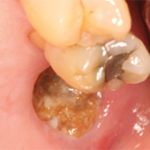Mvasi, a biosimilar to the cancer drug Avastin, is approved for certain colorectal, lung, brain, kidney and cervical cancers
The U.S. Food and Drug Administration today approved Mvasi (bevacizumab-awwb) as a biosimilar to Avastin (bevacizumab) for the treatment of multiple types of cancer. Mvasi is the first biosimilar approved in the U.S. for the treatment of cancer.
“Bringing new biosimilars to patients, especially for diseases where the cost of existing treatments can be high, is an important way to help spur competition that can lower healthcare costs and increase access to important therapies,” said FDA Commissioner Scott Gottlieb, M.D. “We’ll continue to work hard to ensure that biosimilar medications are brought to the market quickly, through a process that makes certain that these new medicines meet the FDA’s rigorous gold standard for safety and effectiveness.”
Mvasi is approved for the treatment of adult patients with certain colorectal, lung, brain, kidney and cervical cancers. Specifically, the approved indications include:
- Metastatic colorectal cancer, in combination with intravenous 5-fluorouracil-based chemotherapy for first- or second-line treatment. Mvasi is not indicated for the adjuvant treatment of surgically resected colorectal cancer.
- Metastatic colorectal cancer, in combination with fluoropyrimidine-irinotecan- or fluoropyrmidine-oxaliplatin-based chemotherapy for the second-line treatment of patients who have progressed on a first-line bevacizumab product-containing regimen. Mvasi is not indicated for the adjuvant treatment of surgically resected colorectal cancer.
- Non-squamous non-small cell lung cancer, in combination with carboplatin and paclitaxel for first line treatment of unresectable, locally advanced, recurrent or metastatic disease.
- Glioblastoma with progressive disease following prior therapy, based on improvement in objective response rate. No data is available demonstrating improvement in disease-related symptoms or survival with bevacizumab products.
- Metastatic renal cell carcinoma, in combination with interferon alfa.
- Cervical cancer that is persistent, recurrent, or metastatic, in combination with paclitaxel and cisplatin or paclitaxel and topotecan.
Health care professionals should review the prescribing information in the labeling for detailed information about the approved uses.
Biological products are generally derived from a living organism and can come from many sources, such as humans, animals, microorganisms or yeast. A biosimilar is a biological product that is approved based on data showing that it is highly similar to an already-approved biological product and has no clinically meaningful differences in terms of safety, purity and potency (i.e., safety and effectiveness) from the reference product, in addition to meeting other criteria specified by law.
The FDA’s approval of Mvasi is based on review of evidence that included extensive structural and functional characterization, animal study data, human pharmacokinetic and pharmacodynamics data, clinical immunogenicity data and other clinical safety and effectiveness data that demonstrates Mvasi is biosimilar to Avastin. It has been approved as a biosimilar, not as an interchangeable product.



